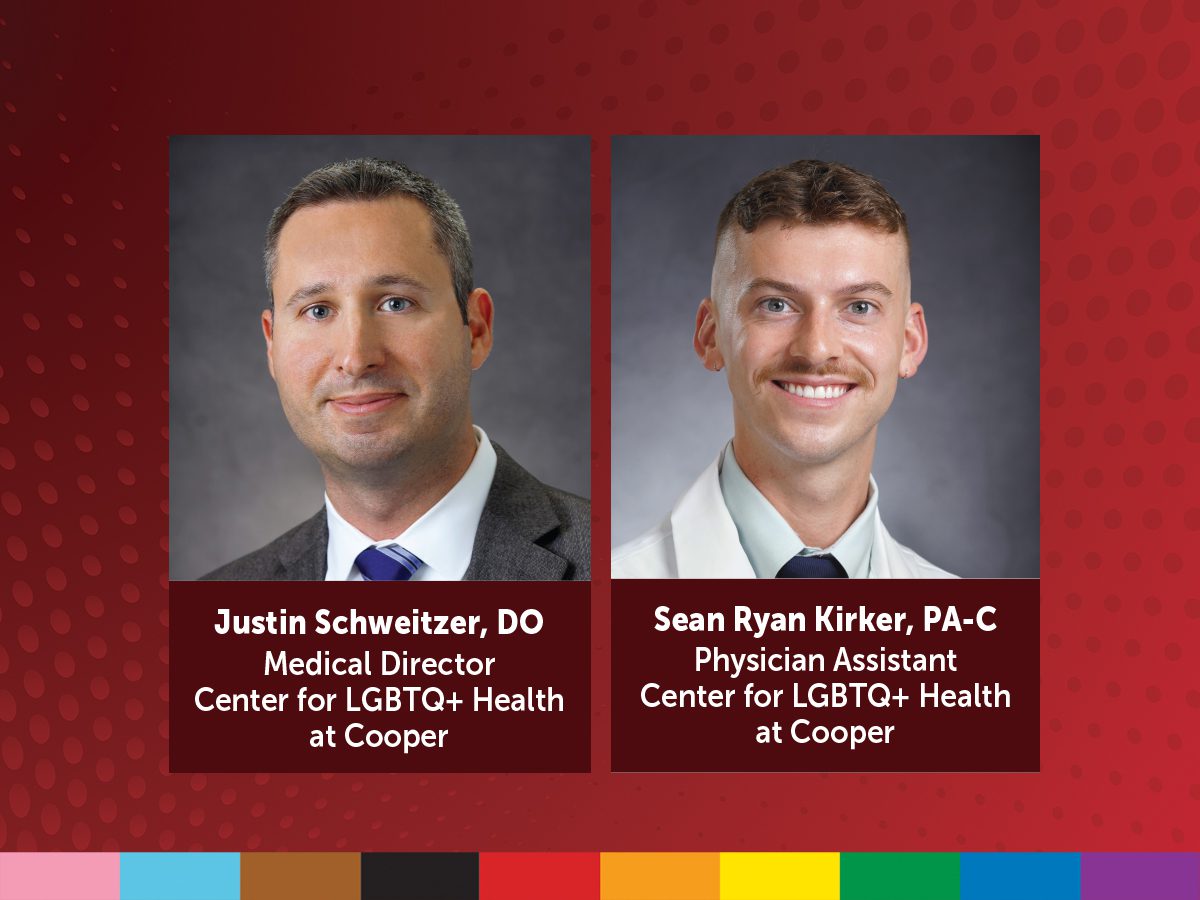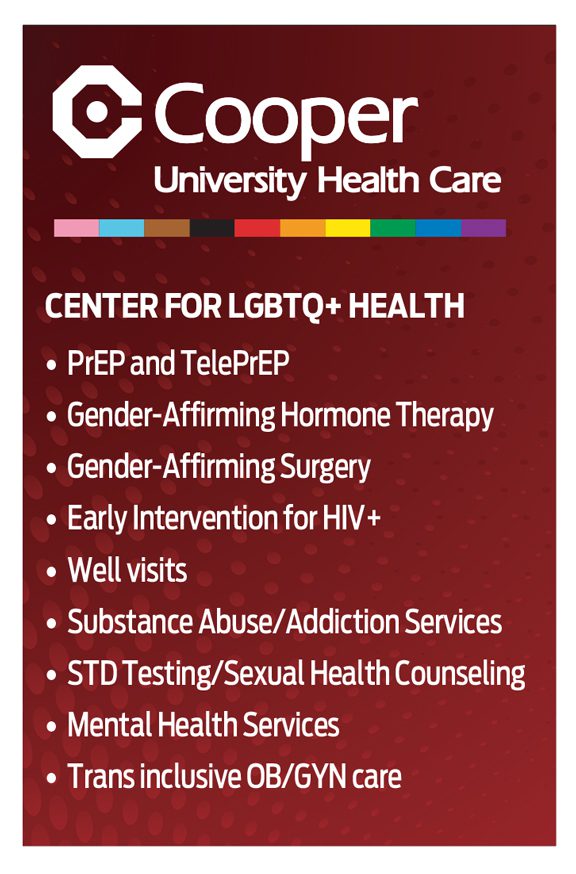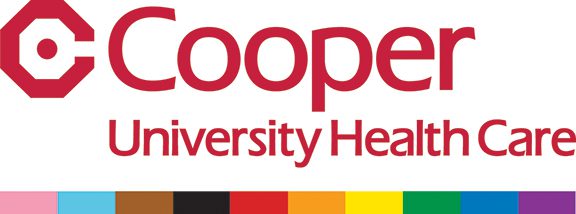Center for LGBTQ+ Health

For many members of the LGBTQ+ community, finding the right health care provider is often challenging. At Cooper, members of the LGBTQ+ community now have access to a network of providers who offer health care services in a safe, caring space.
“We have different providers across multiple specialties who understand the needs of the LGBTQ+ community,” says Sean Ryan Kirker, MS, PA-C, Physician Assistant at the Center for LGBTQ+ Health at Cooper. “A lot of studies show that, historically, members of the LGBTQ+ community have had negative experiences with health care providers, either because of the provider’s own personal biases or because they don’t understand the needs of the community. This then leads to health care avoidance – it’s a well-documented need we’re trying to address.”
The Center provides a wide range of health care services, and “many of our ser-vices are distinct and unique for this com-munity,” says Justin Schweitzer, DO, Medical Director for LGBTQ+ Health and Primary Care at Cooper. “We offer PrEP management, which is 99% effective at reducing HIV transmission when taken as directed. We also have sexual health coun-seling, STD screenings and treatment, and gender-affirming hormone therapy and surgery.”
The Center also provides routine health care for members of the LGBTQ+ community and their families – things like managing high blood pressure or diabetes, mental health counseling and providing vaccinations. “Our patients might not need unique care,” says Dr. Schweitzer, “they might just need to be sure they’re in a safe and comfortable environment.”
That safe partnership between the patient and provider is key, says Kirker. “It’s important to be able to connect on a human level with your provider. A posi-tive relationship can be really impactful in helping patients share things they might not have been able to share with other providers. You already feel vulnerable going to a doctor’s office. Imagine also wondering if the provider will see you for who you are. For example, if you are trans, you might worry you’ll be called by incor-rect pronouns, which can cause really neg-ative feelings. So many things play into the health care experience. We’re trying to focus on the humanity in medicine. We want patients to know we are in their cor-ner, fighting for them. After all, that’s what we’re here for.”
“If a patient doesn’t trust their health care provider,” adds Dr. Schweitzer, “they are more likely to not listen to any recommendations for treatment. If that happens enough, the patient just avoids seeking health care in general. I want patients to know we have an inclusive, respectable space so when you come to us with any sort of health care need, we will take care of you.”
Both Dr. Schweitzer and Kirker credit Cooper’s executive leader-ship team for supporting the mis-sion of the LGBTQ+ Center.
“Cooper is taking steps to make changes across the organization, so in addition to patients feeling welcome here, our staff feels welcome working here. Since we’re the region’s leading academic health care system, we have a lot of medical stu-dents, residents and fellows who help us take care of our patients. Part of the work I do is make sure they have opportunities to learn more about LGBTQ+ health. I think Cooper excels in the region when it comes to all these things.”
Primary, specialty and surgical care services for the LGBTQ+ community, and their families, are available at Cooper 5 days a week. Cooper also has LGBTQ+ friendly providers available 7 days a week for urgent care needs from 8 am – 8 pm. Appointments with Sean Ryan Kirker, PA-C, can typically be made within 1-2 busi-ness days.
“We’re here for you,” adds Kirker. “We have a large, strong network of health care providers. Our mission at Cooper is to serve, to heal and to educate, and that’s what we’re doing for our LGBTQ+ patients.”



